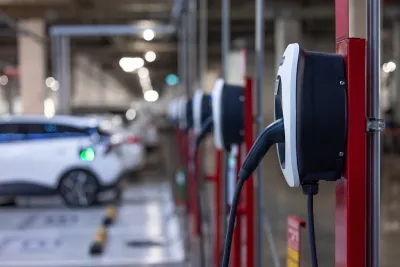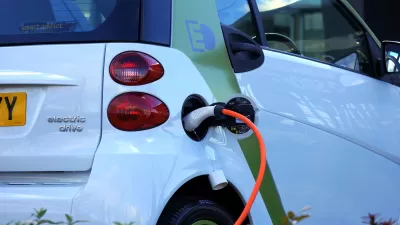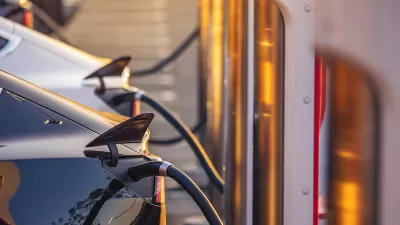California now has 48% more electric vehicle chargers than gasoline nozzles, reflecting its rapid shift toward clean transportation and aggressive zero-emission goals despite federal pushback.

California now has significantly more electric vehicle (EV) chargers than gasoline nozzles, marking a major milestone in the state’s transition to clean transportation. According to Governor Gavin Newsom’s office, there are approximately 178,000 public and shared private EV chargers across California, compared to an estimated 120,000 gas nozzles—representing a 48% difference. As reported by Patrick George, most of these chargers—about 162,000—are Level 2, which are slower but adequate for daily use, while only 17,000 are DC fast chargers, which offer quicker charging similar to traditional refueling.
The surge in charger availability reflects California’s continued leadership in electric vehicle adoption. In 2024 alone, the number of charging ports nearly doubled, a response to increasing demand as roughly 25% of new car sales in the state last year were electric vehicles. To further support this growth, California is investing $1.4 billion into expanding charging and hydrogen fuel infrastructure, improving charger reliability, and accelerating permitting processes—part of a broader effort to meet its climate and clean energy targets.
These developments come amid policy tensions at the national level. Governor Newsom criticized efforts by the Trump administration to reverse federal support for EV infrastructure and tax credits, stating that California is doing the opposite by strengthening its zero-emission goals. Under current state law, 68% of all new vehicles sold must be zero-emission by 2030, with a complete ban on new gas-powered car sales by 2035. While legal and legislative challenges may follow, California continues to push forward in building a transportation system centered on electric mobility.
FULL STORY: California Now Has More EV Chargers Than Gas Pumps

Alabama: Trump Terminates Settlements for Black Communities Harmed By Raw Sewage
Trump deemed the landmark civil rights agreement “illegal DEI and environmental justice policy.”

Planetizen Federal Action Tracker
A weekly monitor of how Trump’s orders and actions are impacting planners and planning in America.

The 120 Year Old Tiny Home Villages That Sheltered San Francisco’s Earthquake Refugees
More than a century ago, San Francisco mobilized to house thousands of residents displaced by the 1906 earthquake. Could their strategy offer a model for the present?

In Both Crashes and Crime, Public Transportation is Far Safer than Driving
Contrary to popular assumptions, public transportation has far lower crash and crime rates than automobile travel. For safer communities, improve and encourage transit travel.

Report: Zoning Reforms Should Complement Nashville’s Ambitious Transit Plan
Without reform, restrictive zoning codes will limit the impact of the city’s planned transit expansion and could exclude some of the residents who depend on transit the most.

Judge Orders Release of Frozen IRA, IIJA Funding
The decision is a victory for environmental groups who charged that freezing funds for critical infrastructure and disaster response programs caused “real and irreparable harm” to communities.
Urban Design for Planners 1: Software Tools
This six-course series explores essential urban design concepts using open source software and equips planners with the tools they need to participate fully in the urban design process.
Planning for Universal Design
Learn the tools for implementing Universal Design in planning regulations.
Clanton & Associates, Inc.
Jessamine County Fiscal Court
Institute for Housing and Urban Development Studies (IHS)
City of Grandview
Harvard GSD Executive Education
Toledo-Lucas County Plan Commissions
Salt Lake City
NYU Wagner Graduate School of Public Service





























